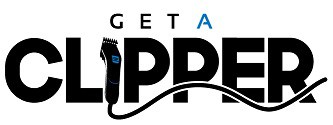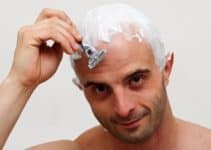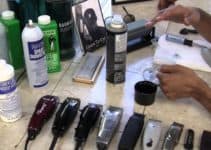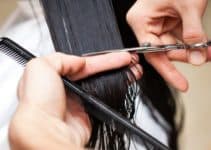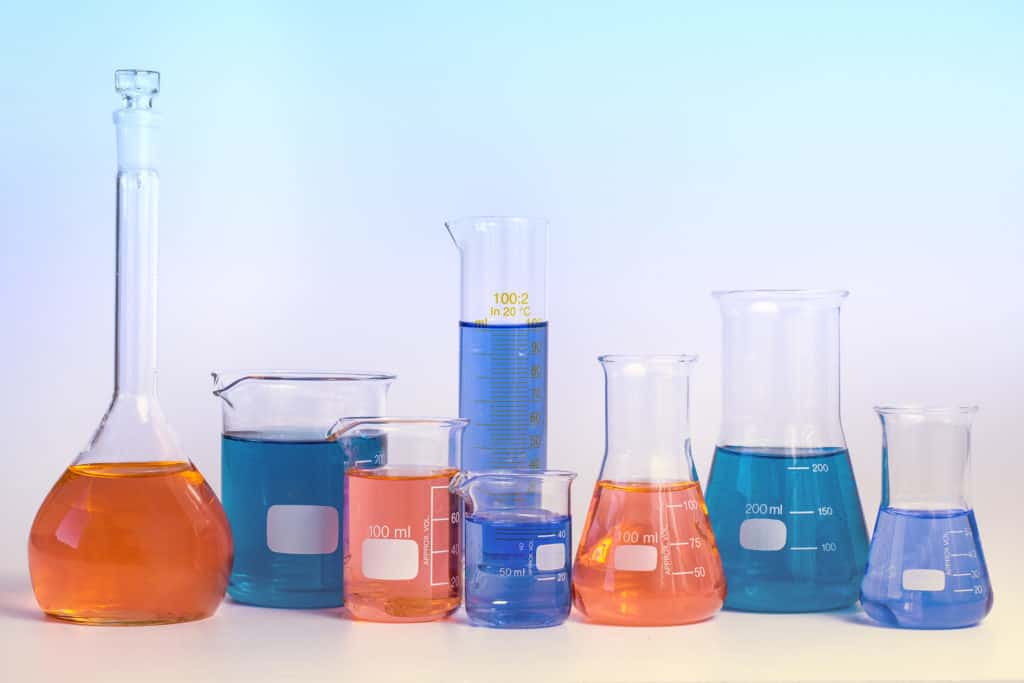
Chemicals That Destroy Hair Follicles Explored
Are you aware of the fact that there are certain chemicals that can actually destroy your hair follicles? If you’re serious about protecting and growing your hair, you need to make sure that you do everything humanly possible to protect yourself.
Learning about these potentially dangerous chemicals in advance will make a huge difference. Within this guide, you’re going to learn all about chemicals that will end up destroying your hair’s follicles.
OTC Products
First and foremost, you should know that there are over-the-counter products that destroy hair follicles. They’re designed for this specific purpose. Nair is undoubtedly the best known. Here are others recommended hair removal creams if that’s what you’re looking for:
This product is used to remove hair from certain places on the body. It can be used in all areas of the body, but a lot of people use it on their legs, arms, and face.
If you wish to keep the hair on your head, you should definitely avoid using Nair. Another commonly used OTC solution is Veet. This specific product relies on potassium hydroxide and thioglycolic acid to deal with the problem.
Veet works exceptionally well. It is capable of breaking down the bonds within the hair follicles. Once it has done that, the hair can be removed without too much trouble.
When using this product, you have to be extremely careful. After all, it can cause a handful of negative side effects. Below, you’ll learn a little more about Nair’s active ingredients so you can find out about the chemicals that are responsible for destroying the hair follicles.
Lime and Lye
If you buy a bottle of Nair, you’re going to be using Lime and Lye or Calcium Hydroxide and Sodium hydroxide. These chemicals interact with one another to eliminate the hair.
They do so by increasing the hair’s PH level. This makes it possible for the cream to kill the follicles and remove the hair. Since they’re so effective, these two chemicals are commonly used together in over the counter hair removal products. If you’re trying to get rid of unwanted hair, you can count on this combination to work. It rarely fails.
Potassiumthioglycolate
There are many chemicals out there that are known to break down the hair’s follicles. Another very popular one is potassium thioglycolate. This specific chemical is commonly used in hair removal products.
It works a little bit different than the lye and lime combination. This chemical is going to break the bonds within the hair’s follicle. It is so effective that it is eventually going to make the hair so brittle that you’ll be able to wipe it off of your skin with a rag.
If you’re going to be around this chemical and you want to keep your hair, you should handle it carefully. Otherwise, you might end up losing your hair for a long period of time.
Other Cautions
While these chemicals are primarily known for eliminating hair, they can cause an abundance of other risks as well. This is why they need to be handled with care.
First and foremost, you should know that they’re capable of creating severe burns. If you’re not careful and do not monitor the cream, there is a real chance that you’re going to end up with welts and burns.
While you’re at it, you should be worried about getting the cream into your eyes, nose, and mouth. Doing so could be very dangerous. Use the cream carefully to avoid potential problems. Otherwise, you might do more harm than good.
Some people will experience an allergic reaction when using such products. Be careful and protect yourself. If you notice anything out of the ordinary, you should limit your exposure to the chemicals right away.
Finally, it is true that these chemicals are going to leave behind a unique smell. The smell can linger around for a pretty long time. Therefore, you may wish to stay at home until you’ve managed to get rid of the smell for good.
Chemicals That Can Hinder Hair Growth
While some chemicals are capable of destroying the hair, there are others that will actually prevent the hair from growing back in the future. It is in your best interest to learn more about these products so you can do your best to avoid them at all costs.
So, what are some of the chemicals that can prevent hair from growing back? Mineral oil is one chemical that you have to worry about.
This petroleum ingredient is found in an abundance of products. It is effective for many purposes. The only downside is the fact that it is going to coat the skin to the point that it is no longer able to release toxins.
When that happens, cell development is going to be slowed down significantly. In return, you won’t be able to grow your hair as you did normally. Isopropyl alcohol is another chemical to avoid.
It is commonly found in antifreeze and shellac. If you want to keep your hair growing as long as possible, you need to avoid this chemical at all costs. PEG and PG are two others.
Polyethylene Gycol and Propylene Glycol are dangerous chemicals when it comes to hair growth. Sadly, it is possible to find bother in various products, including deodorants, toothpaste, and even mouthwashes.
Suffice to say, there are lots of dangerous chemicals out there. To protect yourself from them all, you need to do your research. Find out what is going to hinder your hair’s growth and always read the labels. This will help you avoid potentially dangerous chemicals and keep your hair growing as long as possible.
A great idea is to use some chemicals that help with the hair growth in order to counter the effects of the chemicals that destroy them. Here are some great hair growth product recommendations:
Summary
At the end of the day, there are plenty of unique chemicals that can kill your hair. It is in your best interest to avoid them at all costs unless you want to get rid of the hair completely.
Remember that the hair will probably grow back in the future. Nevertheless, that can be a time-consuming process and you may not wish to go without your hair for that long. If that is the case, you should protect yourself to ensure that you do not run into these chemicals.
